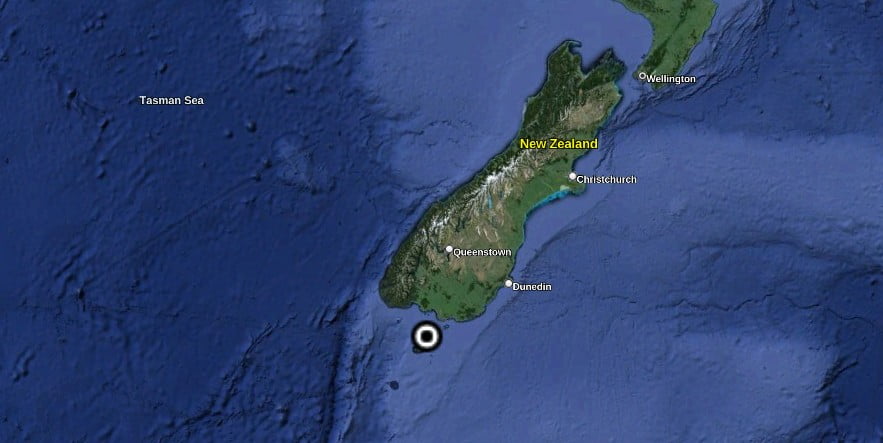Mass whale stranding in Mason Bay, New Zealand

A pod of 145 pilot whales was found stranded on a beach on Stewart Island (Raikura) in New Zealand late November 24, 2018 (LT). The whales were found in two ponds about 2 km (1.2 miles) apart in Mason Bay. While this is the biggest stranding event, three more strandings were reported over the weekend.
Authorities said half of the 145 whales were already dead by the time they were found. The other half were put down due to the condition they were in and the remote location where they stranded.
“Sadly, the likelihood of being able to successfully re-float the remaining whales was extremely low,” Ren Leppens of the regional Department of Conservation (DOC) said in a statement.
“The remote location, lack of nearby personnel and the whales’ deteriorating condition meant the most humane thing to do was to euthanize. However, it’s always a heart-breaking decision to make.”
There are about 85 stranding incidents in a year, according to DOC. However, in most cases, it is just a single animal, not a whole pod.
It’s not fully known why whales or dolphins strand, they said. Some of the possible reasons are sickness, navigational errors, falling tides, being chased by a predator or extreme weather.
In separate incidents, 12 pygmy killer whales were found stranded on 90 Mile Beach, south of Te Paki Stream and 1 dead female pygmy whale on the same day. Another large sperm whale was found close to shore in Doubtless Bay on November 22. DOC remained on the scene throughout the night but was unable to help the whale. He died during early morning hours of November 23.
10 of the 12 whales were found alive and in good condition, Project Jonah, a volunteer emergency service for stranded dolphins and whales, said. Two of them died before the volunteers managed to move them from the West Coast to the East Coast.
“We have mobilized our local medics to the beach to work alongside Department of Conservation, members of the public and other volunteer groups. High Tide is at 12.30pm and there will be no beach at this time,” they said in an update posted November 25.
“The refloat of eight pygmy killer whales was attempted this afternoon in Northland,” the group said November 26. “Two of the whales were put in pontoons and taken out to deeper water using boats. Six whales were refloated and were drawn towards the whales in pontoons but two of these whales restranded themselves. The condition of the two whales was checked and the decision was made to euthanize.”
“The remaining six whales are now about 500 m (1 640 feet) offshore and the Department of Conservation will continue to monitor them over the afternoon.”
Project Jonah general manager Daren Grover said pilot whales are not endangered, but their total population is unclear so it is hard to say what the long-term toll of a large stranding could be.
“The whales are a tropical breed and it’s very rare to see them in New Zealand waters,” Grover said. “This is a species we are unfamiliar with.”
“Having this number of animals come up together, suggests they are a family pod. They all would be traveling together, living together and socializing together in the ocean.”
“It is likely that rising sea temperatures were encouraging some breeds to travel further out of their usual grounds,” he said, adding the only one pygmy killer whale had stranded and died in New Zealand before.
“Last year we had some record coastal temperatures. It could be the start of us seeing more unusual species visiting New Zealand shores.”
More than 650 pilot whales beached themselves along Farewell Spit, South Island in two separate mass strandings last year. It was the largest of its kind in New Zealand for almost a century.
The biggest recorded pilot whale stranding was an estimated 1 000 whales at the Chatham Islands in 1918.
Featured image credit: TW

Whales navigate along mysterious straight lines. (Read “Moby Dick” by occasion).
So one should check possible incoming whale route and transport them so, that they can bypass land and swim further.
Not a 100% success expected.